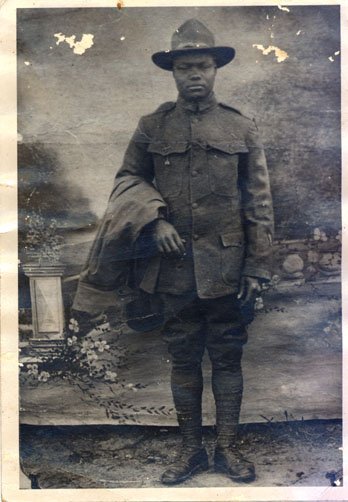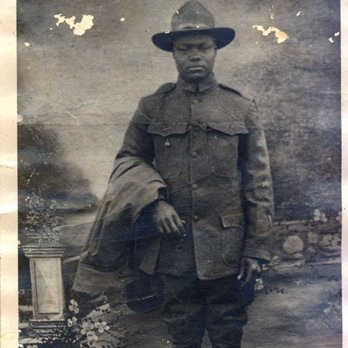Mississippians

African-Americans in Oxford and Lafayette County came from a wide variety of southeastern states including South Carolina, Virginia, Alabama, North Carolina, and Georgia. Some arrived before the Civil War and others migrated to the county after the War. Many family names related to times of slavery and original plantations names.
I. The African-American Presence in Early Oxford-Lafayette County
"The establishment of Lafayette County occurred on February 9, 1836 arising from the Chickasaw Cession. The town of Oxford, seat of justice for Lafayette County, was founded June 22, 1836. In the three census period prior to the Civil War the record shows that Lafayette County's slave population was substantial. In 1840 there were 3,689 whites in the county of which 2,018 were males and 1,658 females, during the same period. This compares with 2,842 slaves, composed of 1,412 males and 1,430 females, during the same period. In 1850 whites increased to 8,346 and slaves expanded to 5,719. By 1860, the white population grew to 8,989 and the number of slaves increased to 7,129. The majority of slave holders in Lafayette County possessed two to fifteen slaves while five owned between one-hundred to two-hundred slaves.’" -- A History of Lafayette County, Mississippi / John C. Sobotka, Jr. Oxford, MS: Rebel Press, 1976. Page 32.
II. Reconstruction, 1869-1875
Black Democrats during the Reconstruction period in Lafayette County included Joseph Taylor, Jim Nelson, Jack Carter, William Frierson, and Newton Chilton. These followed the traditional Democratic Southern Party. Republicans included Tobe Humphries, Bob Stockard, and Alexander Phillips. Phillips was a school teacher and preacher who came to the country after the Civil War. The Republicans were associated with the Freedman’s Bureau, the Loyal League, and a garrison of federal soldiers to keep the peace. A Black militia formed in 1870 with Anderson as First Lieutenant and George Berley as Second Lieutenant.
The Loyal League was founded to instruct Blacks in voting. Loyal League leaders included the above mentioned persons, as well as Mack Avant, Jake Watson, and Add Brown. Meetings were held at black churches and in the woods. The Freedman’s Bureau was in charge of refugees, freedmen, and abandoned county lands. In addition, the Bureau worked with controversies related to Black workers and other matters. The Bureau used the soldier garrison to enforce rulings. During 1869, Jerry Fox served on the Board of Police for Lafayette County. From 1873-79 Mack Avant served on the same Board. Tobe Humphries was appointed to the Grand Jury and Bob Stockard was magistrate for College Hill.
Black schools in the county were taught by black teachers. Alexander Phillips taught at the Oxford Female Colored School in 1874-75 and received a wage of $50.00. Other teachers included Joseph Phillips, George Humphries, Emma Webster, and Henry Brothers.
The area of Oxford between North 7th Street and 5th Street extending south from Price to Jackson Avenue was originally called Freemantown. Oral tradition says that the area was sold to freed slaves after the Civil War and became known as Freemantown. By the turn of the century, small houses dotted the area, each with a small garden and often livestock such as pigs, chickens and cows. Water was furnished from cisterns and wells. The original 7th Street was dirt, becoming gravel with the use of cars, then rough pavement about 1939. Freemantown was a small African-American community with churches, schools, stores and businesses. Second Baptist's Church stands on the south edge near the site of former Mama Nance’s (Nancy Humphrey’s) grocery store. Bird Kirkland ran his blacksmith business nearby, shoeing horses and fixing wagon wheels. In 1974, Freemantown underwent Urban Renewal which created wider streets and new housing for many of the residents. On August 5, 1996 the historical marker for Freedmen Town was placed by the Mississippi Department of Archives and History.
III. The Civil Rights Era
From the 1950s through the 1970s, many things changed for African-Americans on both the national and local level. In Oxford, organizations such as the Oxford Improvement Association, the Oxford Development Association and the North Mississippi Rural Legal Services were founded. Schools were integrated resulting in the combined schools such as Bramlett Elementary, Oxford Junior High School, and Oxford High School.
With the entry of James Meredith into the University of Mississippi in 1962, many things changed. Local African-Americans had a mixed reaction to the changes in the traditional white-black relationships. Other African-Americans participated actively in the 1960s Civil Rights activities including housing northern Civil Rights workers in their homes, participating in Civil Rights marches, praising the work of Martin Luther King, Jr., and helping organize new improvement programs for their communities.
(Photo: Chester "Ches" Correthers, circa 1917-1918. Text by Mrs. Susie Marshall.)

